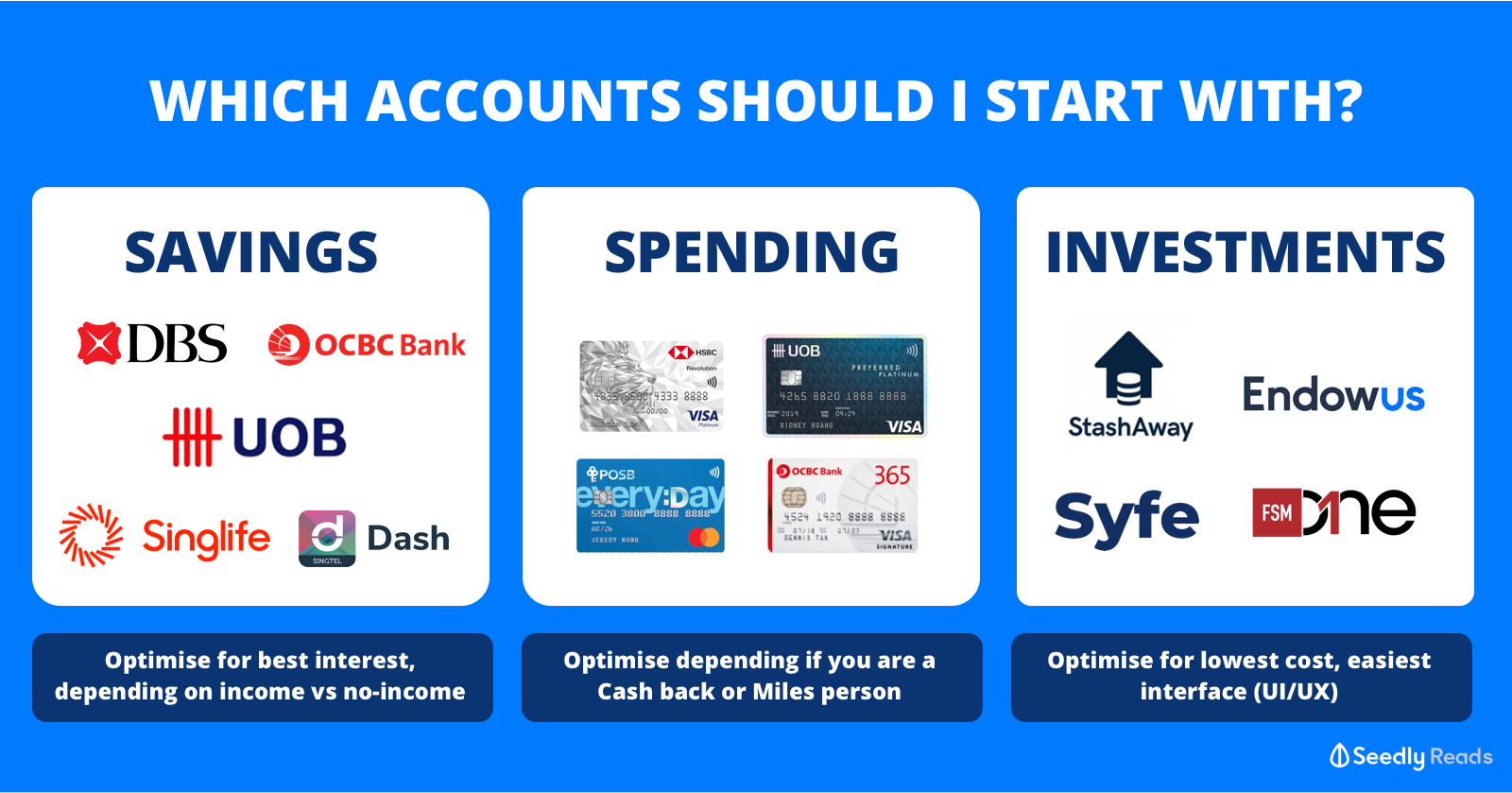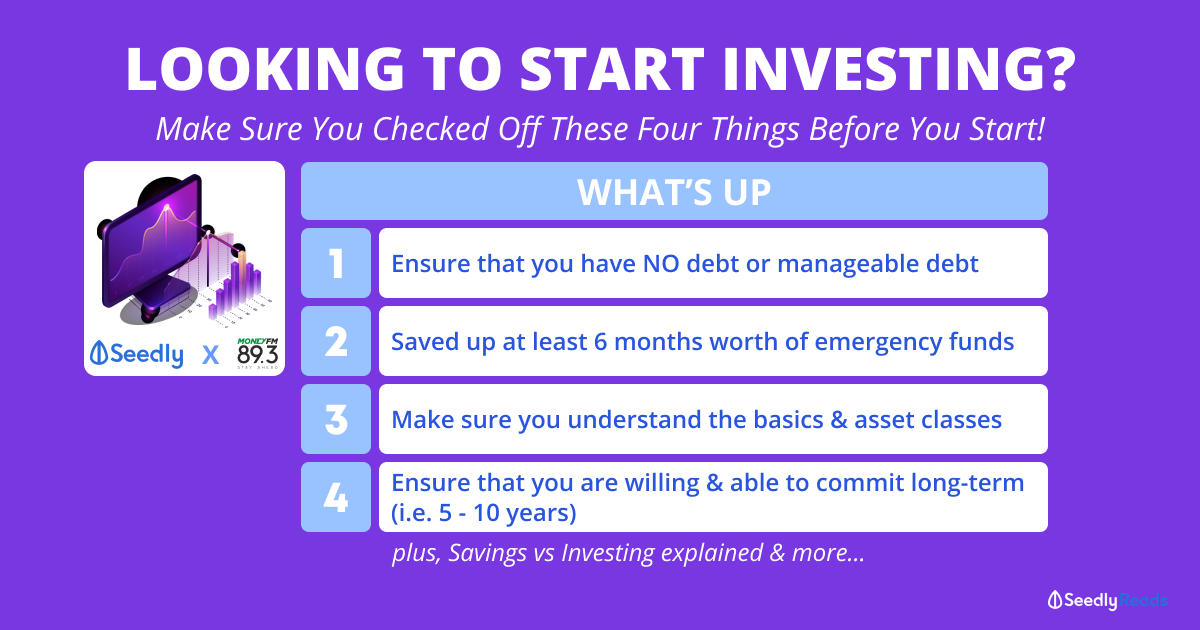Anonymous
How can a student, with no income, start with investing?
What are some options I can look at?
10
Discussion (10)
Learn how to style your text
Paridhi Jhunjhunwala
09 Dec 2019
Associate at Kristal.AI
Reply
Save
Elijah Lee
19 Nov 2019
Senior Financial Services Manager at Phillip Securities (Jurong East)
Hi anon,
Start by getting an income first. Without income, you cannot continue to retain your savings and your cash flow. If you invest without an income source, you will eventually exhaust all your savings.
Don't be in a rush to invest. You still have time, and focus on maximizing your earning potential. If you can take home $3K/mth, spend $1K, you will have $2K cash flow. BUt if you can accelerate your income within a couple of years to $5K/mth, you will likely still be spending $1-ish K a month and will now have almost $4K/mth to invest (almost double!). And at the start, that can make a fair bit of difference in the long run.
Reply
Save
Savings and education. Have a concrete savings plan and stick to it religiously (there are many articles on savings on Seedly). Meanwhile as you save, stay educated on the investment tools and asset classes. Most importantly, figure out the type of investor you are and how long your investment will be (more than 10 years).
Reply
Save
Hariz Arthur Maloy
19 Nov 2019
Independent Financial Advisor at Promiseland Independent
Start by getting an income. No income you can't do anything.
After you get a job, make sure you get yourself insured first. Then build your emergency fund of 6 months of expenses. And then invest anything above that.
Make sure your investments are divided between goals and objectives. The way you invest for retirement in 40 years, will be very different as compared to a wedding and a home in 4 years.
Reply
Save
Start by building up your capital. In other words, save up your money and try not to spend money too...
Read 6 other comments with a Seedly account
You will also enjoy exclusive benefits and get access to members only features.
Sign up or login with an email here
Write your thoughts
Related Articles
Related Posts
Related Posts









Hi!
As a recent graduate myself, I understand the eagerness to start investing ASAP and grow the capital. However, starting out without an income is not ideal because slowly you will deplete away your savings and put them as investments. It is critical to have some emergency funds and before you start investing because investment markets are volatile and you may need the capital immediately in case of an emergency. Hence, savings will be a good liquid option to fall back upon. Once you have a stable income, you can explore robo-advisors to take you through your investment process by customising solutions based on your financial goals and risk appetite.
I work at kristal.AI, and it's my passion to evaluate various upcoming investment opportunities.